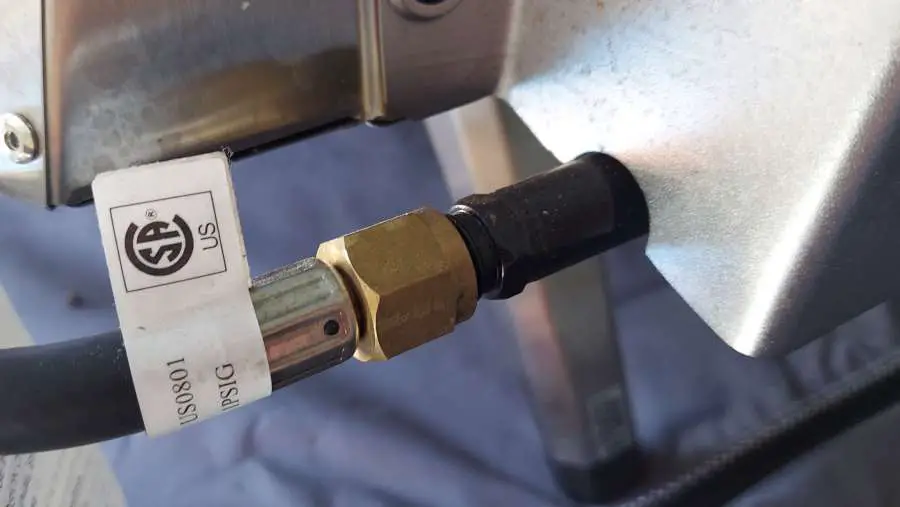Last Updated on May 23, 2024 by Dan Campbell
Looking to purchase a new generator but you’re not sure what fuel type to choose? Gasoline, Propane, Diesel, Hybrid? Depending on your situation, each fuel has advantages and disadvantages. So I have gone ahead and laid out a simple list of pros and cons for each type. Make sure to check out my other posts – Propane Generators: Pros and Cons, as well as Diesel Generators: Pros and Cons.
Gasoline generators are the most common type and are commonly used as backup power sources in case of power outages, for use at construction sites, as well as for camping, tailgating, and other outdoor activities. These generators are typically easy to use and don’t require special equipment to work, unlike a propane generator which requires a separate propane tank and hose with a regulator.
However, there are also several cons to using gasoline generators like the fuel source is highly flammable, and produces larger amounts of emissions when compared to propane. The fuel source also has a low shelf life meaning it’s not ideal for situations where refueling is uncommon, such as a backup generator at a location far away from the city.
Pros of Gasoline Generators
Ease of Use
Gasoline generators are generally easy to use, you can purchase a generator and have it running right away. They typically have very easy to follow instructions, and simple controls to operate. That makes them a convenient and user-friendly option for many uses, such as camping, tailgating, or emergency backup power. Propane on the other hand requires connection hoses and familiarity with propane tanks, and can potentially have leaks that could be fatal. With gasoline generators, you will simply fill the internal tank with gasoline and follow the instructions to start the engine.
Less Expensive
In general, gasoline generators are cost-effective because they are relatively inexpensive upfront and easy to come by. Gasoline is widely available and is often less expensive than other fuels, such as diesel or propane, depending on your location. That helps to reduce the operating costs of a gasoline generator making it more affordable to use over time.
Portable
Gasoline generators are relatively small and lightweight, making them easily transported from one location to another. It can be a particularly useful feature for uses that require a portable or temporary power source, such as camping, tailgating, or emergency backup power. It’s also a lot easier to transport a small 1 or 2 gallon tank of gasoline than a 20lb propane tank.
Fuel availability
One of the main advantages of gasoline generators is that they are fueled by gasoline which is widely available. Not every gas station is going to have propane tanks available, especially if you’re trying to exchange a tank and need to find the closest exchange station for your specific brand.
Cons of Gasoline Generators
Medium Output Power
The output power of a gasoline generator can vary depending on the size and design of the generator, but it is typically in the middle when compared to propane (low output power) and diesel (high output power). Gasoline engines are typically smaller and produce less power than diesel engines. Because of the limited output power, they may not be able to supply enough continuous wattage to run multiple devices or even produce enough power to run items that have large surge wattage requirements such as a table saw. While a table saw might only use 1,800 watts, when it first starts it might require 4,500 watts, also known as surge watts. So even though a 2kw generator could handle the 1,800-watt running power of the tablesaw, it would not be able to turn on due to the high surge requirements.
Smaller Tank Size
The smaller tank size will typically result in a shorter run time for gasoline generators, due to needing to be refilled more frequently. This is because the tank is internal, and usually cannot be increased. Unlike a propane generator which can simply be connected to larger tanks or more than one tank. For example, a generator that runs on gasoline may only hold enough gasoline to run for 8 hours, while a propane generator connected to a large home tank could theoretically run indefinitely. Because of this, it can be inconvenient to use for extended periods. Gasoline also has a short shelf life, only around 6 months. Meaning it may not be suitable for situations where you may not be able to easily refuel.
Louder
One of the main disadvantages of using gasoline generators is the noise they produce. Gasoline engines are typically louder than other types of engines, typically 5-10db louder. The noise from a generator can be loud enough to disturb neighbors and make communication difficult, making them less desirable for use around the home. Because of the amount of noise produced they can also disrupt outdoor activities, such as camping or picnicking, where you will quickly become the least favorite camping neighbor while running your generator.
Maintenance
Gasoline generators typically require regular maintenance to function properly and safely, just as your car requires regular maintenance and oil changes. This maintenance can include changing the oil and spark plugs, cleaning the air filter, and checking the fuel system for leaks or other issues. If not maintained properly, they can be prone to failure, become unsafe for use, or become completely inoperable. You also do not want to run into a situation where you need to use your generator, but due to lack of maintenance or pre-emptive care the unit does not start.
Produces More Emissions
Another drawback of gasoline generators is their very high carbon footprint due to the emissions produced when burning gasoline. Gasoline when combusted produces carbon dioxide and other pollutants, which are unsafe to breathe in. This can be a concern when operating around your home.
Difficulties in Extreme Weather
Gasoline generators are difficult to operate in extreme weather as gasoline can become thick and gummy, making it difficult to ignite and burn efficiently, or even turn on at all. In addition, the oil can become thicker and also restrict the motor from operating normally or at all. Extreme heat can also pose challenges for gasoline generators. The high temperatures can cause the gasoline to evaporate and lose efficiency.
Final Remarks
Hopefully, with all this information you can make a more informed decision on choosing the fuel source for your generator. With this, I recommend gasoline generators for when you require higher output power than a propane generator can provide, and you’re easily able to refuel. If you require something closer to home or for extended periods, I would recommend a propane generator, and if you require more power such as for running multiple power tools, I would recommend diesel, as long as you can easily find diesel. However, in the end, I always believe a duel-fuel generator is the best option as it gives you the pros of each fuel source without limiting you to one fuel type. The most common hybrids are gasoline and propane, so it should be easy to find a generator that fits your needs.
Have a great day and God Bless!




